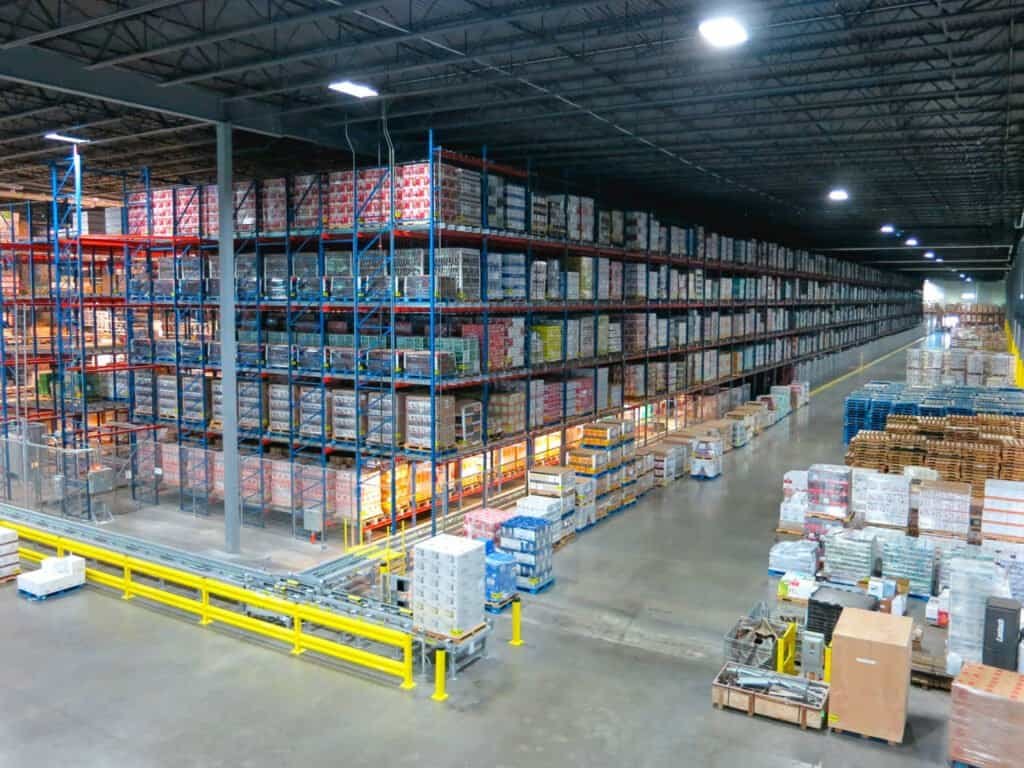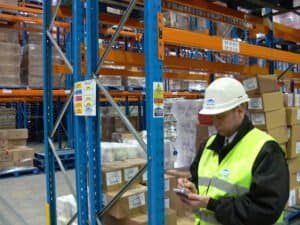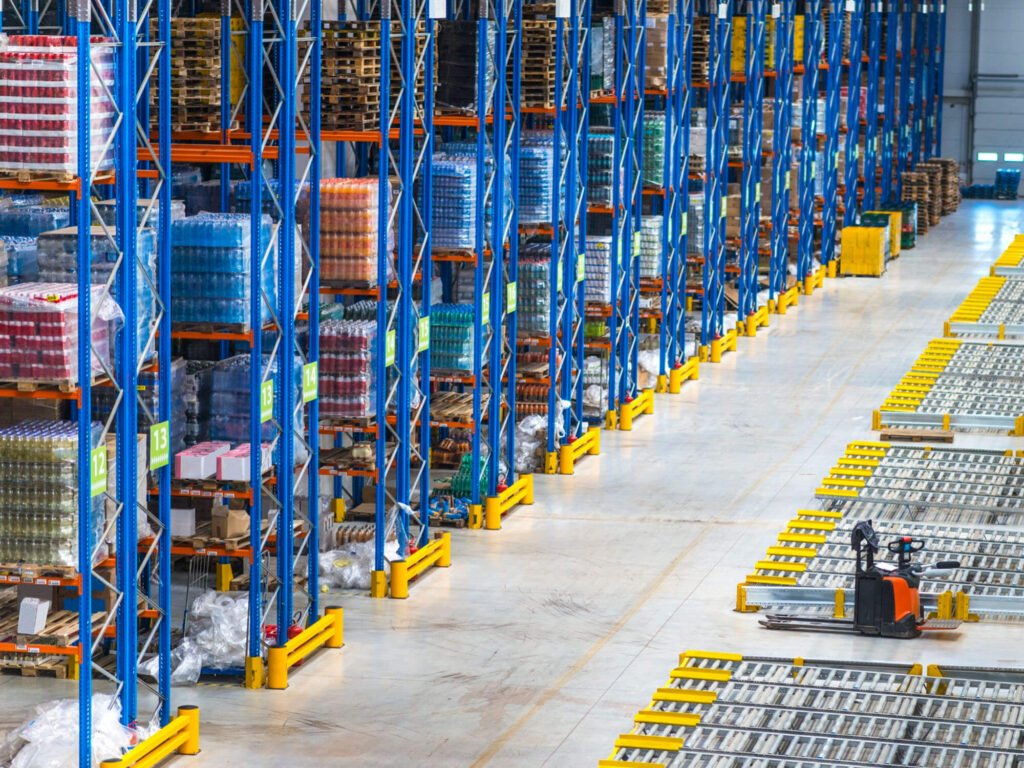The major consideration in every manufacturing industry is warehousing. Warehouses are hence a crucial requirement of every business irrespective of their industry, if they have products to store they need a warehouse. Similarly, when it comes to the beverage industry, the need to have efficient warehousing is very crucial.
If you are looking to implement efficient storage and distribution of beverages and want to improve the setup of your beverage warehouse, the guide below is for you. So let’s take a look.
Key Components of Beverage Warehousing
The key components of beverage warehousing are featured in the section below which will help you in enhancing the efficiency of your warehouse.
Storage Solutions:
Efficient storing systems are crucial for beverage inventory management, as there will be a diverse variety of sizes, types, and weights. Some of the storage systems that are suitable for the beverage warehouse are as follows:
- Pallet racking systems offer a suitable choice when you need to store beverages in bulk in bottles, cans, or cartons. You can choose the different types of pallet racks like pushback or selective pallet racks.
- Incorporating small shelves is also a suitable choice if your storage requirement is on a small scale. For instance, some premium beverages may be in less quantity and need manual packing.
- High-density storage systems that have automated systems or mobile racking are also suitable for storing beverages and offering convenient accessibility.
Temperature Control:
Every type of beverage needs different temperature control which ensures its preservation and freshness. Hence when it comes to quality management the focus on temperature control while storing the beverages is very important.
Alcoholic beverages need to be stored in environments that have stable temperatures and humidity as they help in preserving the flavor. Non-alcoholic beverages need either refrigeration or a cool storage space especially if they are perishable like dairy-based drinks and juices.
Some seasonal beverages may need a customized environment that preserves their quality and in such cases, cold storage is required.
Inventory Management:
Efficient management of inventory ensures that the beverages are stored and distributed by maintaining their quality. Hence, stock levels must be monitored at all times to avoid shortage or overtaking.
Expiry dates of beverages are a very important consideration and systems like FIFO and LIFO can be implemented for managed stock rotations. It helps to prevent any sort of wastage and also alerts about the close expiry so that the beverages can be either offered on deals and discount rates or donated.
Distribution Readiness:
Beverages should be kept prepared for timely distribution and should be managed with appropriate picking and packing systems. This consists of using RFID or barcode systems which can help in organizing the orders.
High-demand beverages can be managed through cross-docking. By having a strategic approach in place for shipping schedules, consistent delivery to distributors and retailers is ensured.
Optimizing Warehouse Layout for Beverages
The layout of a beverage warehouse is also very crucial when managing the storage, and attention should be paid to optimizing it.
Designing the Layout:
When a beverage warehouse is well-designed, smooth operations can be conducted. The storage zones are arranged properly and the beverages are grouped by type, which helps in picking and packing. It also helps to ensure ease of access and enhances the operation efficiency.
There should be organized and wide aisles with clear pathways that support convenient handling and movements. It will not only be easy for the workers to move in the warehouse but also prevent the risks of handling as the bottles are usually sensitive and may break upon collisions.
Vertical Storage Utilization:
To make the best use of space, it is important to implement vertical storage systems. Mezzanine floors and pallet racking systems that are taller can help. Such storage systems can accommodate a bulk inventory and also ensure that the warehouse does not need any increase in footprints.
Investing in a bigger space is not always possible for every business, and by making use of vertical space in an existing warehouse the space issues are resolved conveniently.
Dedicated Zones:
You can also think about dividing your warehouse into different zones. Creating a separate zone for the incoming stock, storage, packing, and shopping helps to prevent any loopholes and streamline the workflow. When the zones are separated, every department works independently and the entire process from receiving to dispatching is carried out with efficiency.
Ensuring Safety and Compliance
Beverage warehouses that need proper storage of beverages also need to have safety and compliance maintained. Some of the ways you can ensure safety and compliance in your warehouse are discussed below.
Health and Safety Standards:
Beverage storage is not as easy as it may seem, taking care of hygiene and safety regulations is very important. It comprises ensuring that clean storage systems are maintained followed by appropriate temperature control. Moreover, pest control is also crucial in beverage warehouses. Timely scheduled inspections should be conducted ensuring that food safety standards are met.
Equipment Safety:
Equipment like conveyors and forklifts that handle the beverages helps to minimize the chance of spillage or damage. This equipment must load and stack the beverage with safety. It is also important to ensure their appropriate handling during the transportation and storage processes.
Employee Training:
Staff deployed at the warehouse must be given proper training which teaches them about the significance of correct handling of beverages, storage, and access methods. Trained staff have the ability to prevent contamination and damage to the beverages. It helps them use the machinery and transport systems within the warehouse efficiently.
The team deployed in the warehouse should be aware of the safety protocols which are important for emergency situations. It helps them deal with any unforeseen hazard in time.
Technology and Automation in Beverage Warehousing
Every industry these days prefers incorporating automated storage systems which helps with operating efficiency. Similarly, the beverage warehouse can also have automated systems implemented which helps in enhancing the warehouse functions.
Warehouse Management Systems (WMS):
A warehouse management system that has the ability to provide real-time tracking of inventory is very important. It helps to assess the stock levels and also allows for maintaining stock rotation using different inventory management methods.
The advanced features in the warehouse management system even help in forecasting demand for better inventory optimization. These systems give a complete insight into every beverage that is in stock with the details and point out the slow-moving beverage as well. Hence decisions regarding which beverage to stock more and which to stock less is also possible.
Automation Tools:
Warehouses these days are often equipped with automated systems like conveyor belts, pick-to-light technology, and even robot-based pickers. Such automated systems improve the efficiency of the warehouse and reduce the need for manual labor.
These tools not only help to fulfill the order very quickly but also there is reduced chance of errors. These systems help very well for such products which are in high demand.
Monitoring Systems:
The need for maintaining the quality of the beverage is very crucial in a warehouse. The use of IoT devices helps with such quality maintenance by monitoring the environmental condition in real time. Companies consider the control of temperature, humidity, and other environmental factors that impact the quality of beverages.
These systems are designed to alert in case there is any problem with the temperature controls so that adjustments can be made immediately to prevent damage.
Best Practices for Beverage Warehousing
When you are optimizing a beverage warehouse, there are some best practices that should be implemented in order to ensure that efficiency is maintained. Some of these aspects are as follows:
Temperature-Sensitive Storage:
Perishable beverages require optimal conditions when tested in a warehouse. This means that cold storage must be insulated and hold the different types of perishable beverages like dairy-based drinks. It is important to maintain a consistent temperature so that any spoilage is prevented and also the product quality isn’t compromised.
Packaging and Handling:
Beverages are sensitive so they need secure packaging. Appropriate packaging will help in preventing leaks and breakages. It also protects from contamination during the transport and storage processes.
Stacking methods should be appropriate so that the bottles do not break and also the equipment designed for handling beverages should be efficient enough to reduce the risks.
Regular Maintenance:
Regular maintenance of storage equipment and cooling systems is important so that consistent cooling is attained. The handling tools should be maintained as well so that they can transport the beverages reliably.
Make sure that the storage space is clean and organized, and conduct timely pest control so that hygiene standards are met. It not only helps to keep the place clean and tidy but also improves the operational efficiency of the warehouse.
Sustainability in Beverage Warehousing
Beverage warehousing requires using sustainable storage practices which can be beneficial in the long run.
Eco-Friendly Practices:
In a beverage warehouse, the dependency on electricity is very high. Hence energy efficient equipment, LED lighting systems, and optimized cold storage should be opted. It helps in reducing energy consumption and helps in saving energy bills. Moreover, solar-powered systems can be introduced to deal with energy consumption.
The use of materials that are recyclable for the purpose of packaging can be of great help and support sustainability. It is important to optimize the warehouse operations in a way that it boosts the eco-friendly practices.
Waste Reduction:
Inventory management effectiveness plays an important role in ensuring that the waste in the beverage warehouse is reduced. You can ensure the implementation of WMS systems, it helps in tracking stock level followed by expiry date. When you are aware of the expiry dates you can take a step towards preventing the waste.
The excessive beverages can be sold with deals so that the stock clearance is achieved or it can also be donated. However, the most important thing is having the proper information of expiry and this is only possible with the right systems in place.
Conclusion
Beverage warehousing is a global practice and it is efficiently achieved when you ensure appropriate systems are implemented with timely checks and balances. A well-organized warehouse that has automated systems implemented with the right storage systems has the capability to operate efficiently. It not only improves the operational efficiency of the warehouse but also prevents wastage and other risks associated with the beverage bottles.
We at Lracking offer you the best warehouse storage solutions. The best part is that these storage solutions are customized based on your requirements. You can always feel free to discuss with us the requirements your beverage warehouse has and we will provide you with efficient and innovative solutions.




